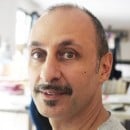Daniel Kahneman, an Israeli psychologist and Princeton University lecturer, is one of the founders of behavioral finance and winner of the Nobel Prize for Economic Sciences in 2002 “for having integrated insights from psychological research into economic science”. His research is focused on how our errors of judgment depend on a series of mental automatisms that lead us to make quick but wrong decisions, because we base them on preconceptions or wrong perceptions. In this very well-known “vintage” TED talk (from 2010), he explains several basic mechanisms of the human mind with exemplary clarity.
“There are several ‘cognitive traps’ that sort of make it almost impossible to think straight about happiness. The first of these traps is a reluctance to admit complexity. It turns out that the word ‘happiness’ is just not a useful word anymore, because we apply it to too many different things. We’ll have to adopt the more complicated view of what ‘well-being’ is.
The second trap is a confusion between experience and memory: basically, it’s between being happy in your life, and being happy about your life or happy with your life. And those are two very different concepts, and they’re both lumped in the notion of happiness”.
And there’s more. When we are having a pleasant experience and something negative happens right at the end, we are convinced that that the entire experience has been ruined. But this is not true. What has been ruined is the memory of the experience. An example of this? A divorce is like a symphony with a screeching sound at the end: the fact is that it ended badly but it doesn’t mean that the whole experience was bad.
In fact, according to Kahneman’s studies, it is like there are two people inside of us, and they are very different from one another: “There is an experiencing self, who lives in the present and knows the present, is capable of re-living the past, but basically it has only the present. And then there is a remembering self, and the remembering self is the one that keeps score, and maintains the story of our life. Those are two very different entities. The remembering self is a storyteller. We tell stories all the time: our memory tells us stories, that is, what we get to keep from our experiences is a story”.
If that is how things really are, the biggest difference is how we handle time. The experiencing self is immerged in a continuum, which almost always leaves no trace; whereas the story we formulate focuses on the key episodes (especially the endings) and not on the flow of events. And this is how we put together stories that we will keep for future reference, which will guide us in our forming our opinions and our choices: “The remembering self does more than remember and tell stories. It is actually the one that makes decisions. We actually don’t choose between experiences, we choose between memories of experiences. And even when we think about the future, we don’t think of our future normally as experiences. We think of our future as anticipated memories”.
Going back to the concept of well-being, there are significant differences between the wellbeing that we experience while we are living our lives and our opinions when we are called upon to assess the level of satisfaction we are experiencing in our lives.
“If you ask for the happiness of the remembering self, it is not about how happily a person lives. It is about how satisfied or pleased the person is when that person thinks about her life. You can know how satisfied somebody is with their life, and that really doesn’t teach you much about how happily they’re living their life”.
The bottom line is that we are much less rational than we think we are and we tend to underestimate the role that memories linked to emotions has in forming our opinions and in our decision-making.
